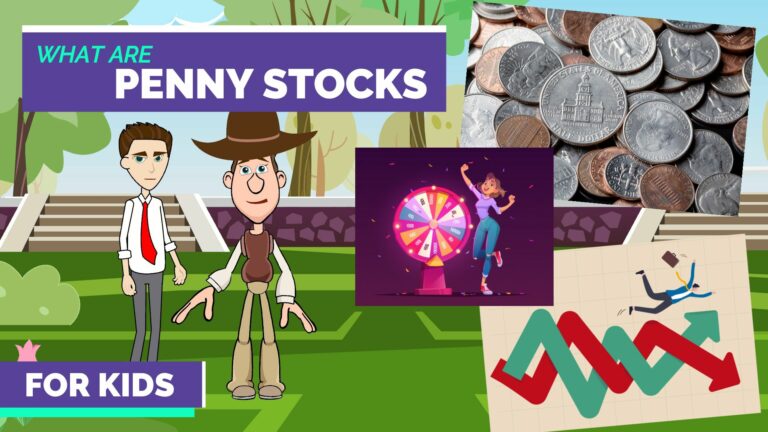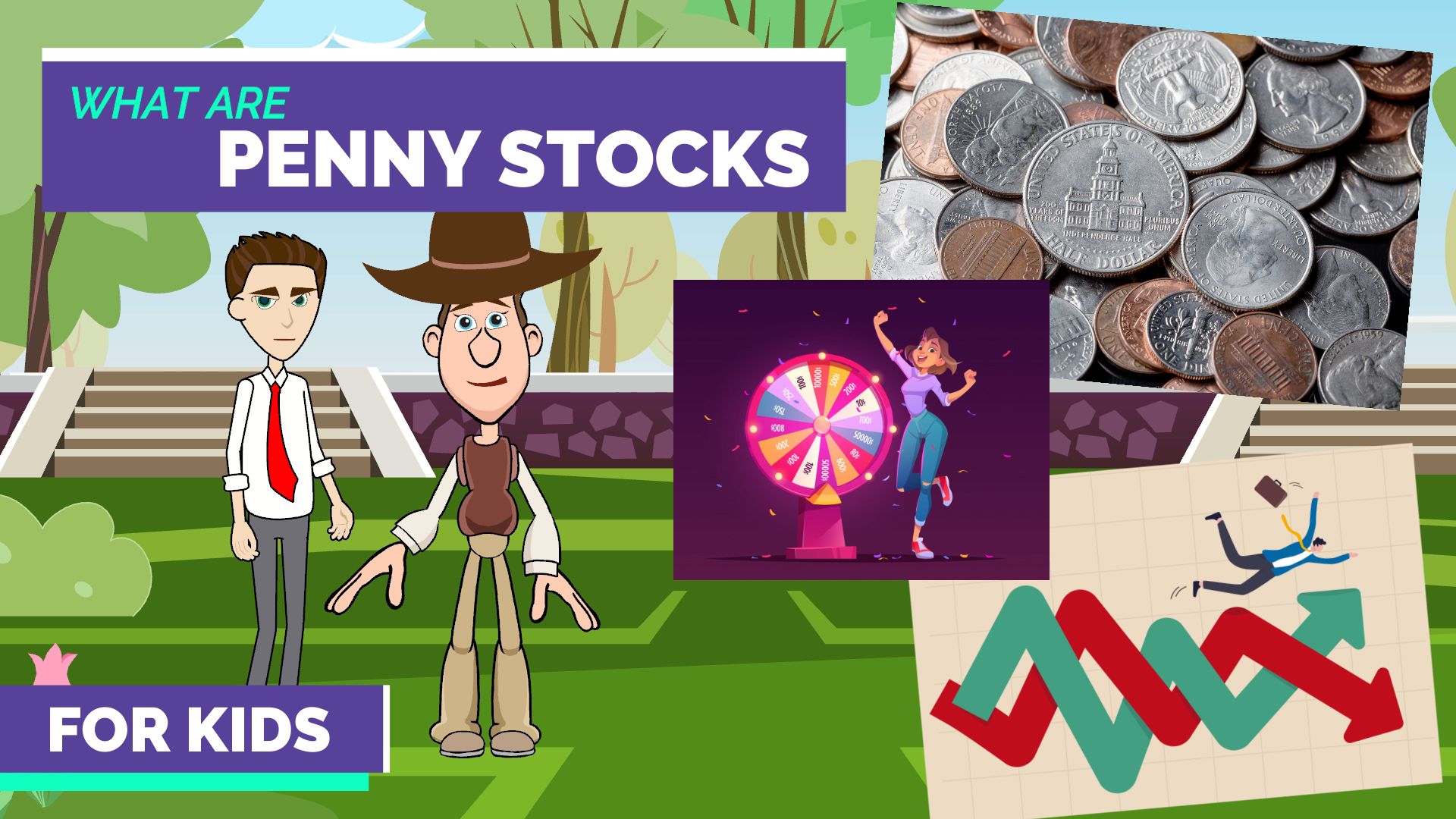Introduction to Penny Stocks for Kids and Teens
This video explains the concept of penny stocks in a simple, concise way for kids and beginners. It could be used by kids & teens to learn about penny stocks, or used as a money & personal finance resource by parents and teachers as part of a Financial Literacy course or K-12 curriculum.

Suitable for students from grade levels:
- Kindergarten
- Elementary School
- Middle School
- High School
The topics covered are:
- What are penny stocks
- How are penny stocks traded
- What are the pros / advantages of penny stocks
- Are there any cons / disadvantages of penny stocks
- Should you invest in penny stocks
What are penny stocks?

Penny stocks are stocks that cost less than $5.
In the past, only stocks worth less than a dollar were called penny stocks. This is how they got their name: they cost only a few pennies!
Penny stocks are very volatile, resulting in their price changing dramatically in a short period of time. This makes them a very risky investment.
How are penny stocks traded?
Very few penny stocks are listed on stock exchanges.
Most penny stocks are traded over-the-counter electronically. This means they are not available on a centralized stock exchange, but are instead traded through a network of dealers and listing services like Over the Counter Bulletin Board or OTCBB, and Pink Sheets.
What are the advantages of penny stocks?
The most attractive feature of penny stocks is their low price. Because of this, there is a possibility of making a profit even if you only put in a small amount of money.
However, this rarely happens, as finding penny stocks that can provide sizable returns is very difficult.
Are there any disadvantages of penny stocks?
Penny stocks are very illiquid, which means that you cannot easily buy and sell their shares.

Also, it is very difficult to find information about penny stocks as they are not well regulated, and are not required to provide investors any information about the company’s performance. This lack of transparency makes it very difficult to analyze the company to see if it is a good investment.
Another big disadvantage of penny stocks is that their huge risk makes them more of a gamble than an investment. It is highly likely for investors to lose most or all of their money if they invest in penny stocks.
Penny stocks have a reputation for being fraudulent, and investors often get scammed when buying a penny stock.
Should I invest in penny stocks?
No. The disadvantages of penny stocks far outweigh their advantages. So, it is best to not invest in penny stocks.
Instead, you should invest in well-diversified, mainstream alternatives – like an S&P 500 based Index Fund.
Download Transcript: Ideal for Use by Teachers in their Lesson Plan to Teach Kids & Teens
Podcast: What are Penny Stocks
Fun, informative and concise episodes by a 10-year old, breaking down complex financial concepts in a way that kids and beginners can understand. Episodes cover personal finance topics like saving, investing, banking, credit cards, insurance, real estate, mortgage, retirement planning, 401k, stocks, bonds, income tax, and more, and are in the form of a conversation between a cowboy (a finance novice) and his friend, a stock broker. Making finance your friend, only at Easy Peasy Finance.
A little bit about me: I have been fascinated with the world of personal finance since I was 6! I love to read personal finance books, and keep myself updated on the latest by reading various personal finance magazines. My friends often ask me questions about finance because they find it complex and intimidating. That’s what inspired me to start my YouTube channel called Easy Peasy Finance when I was 8, and this podcast 2 years later.
Everything you need to know about penny stocks: What are penny stocks, How are penny stocks traded, What are the advantages / pros of penny stocks, Are there any disadvantages / cons of penny stocks, Should you invest in penny stocks, and more.
Show notes and transcript at: https://www.easypeasyfinance.com/penny-stocks-for-kids-teens-beginners/


